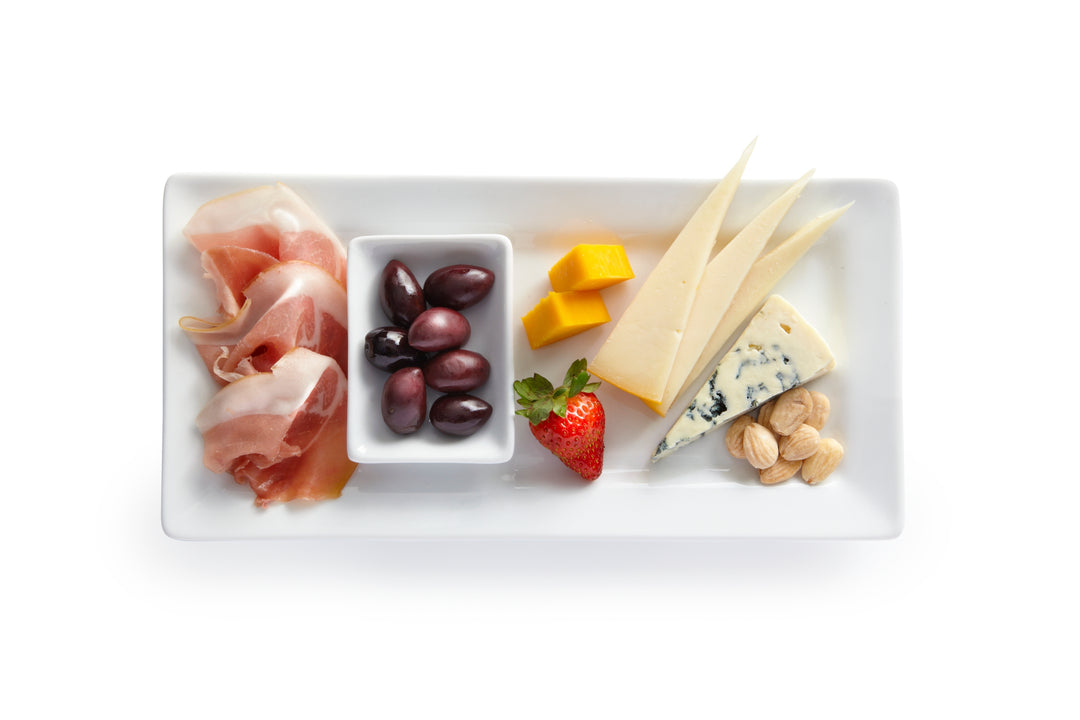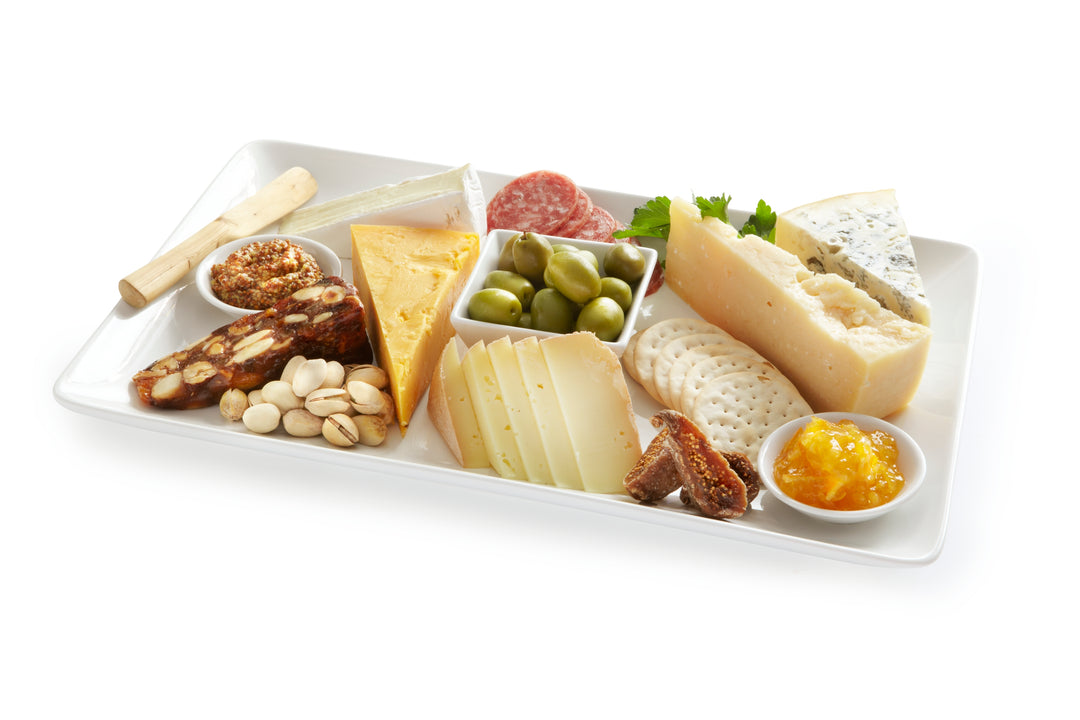Introduction to Gouda Cheese: A Dutch Delicacy
Gouda cheese, a beloved Dutch creation, has been tantalizing taste buds and nourishing bodies for centuries. This semi-hard cheese, known for its rich, buttery flavor and smooth texture, has become a staple in households and restaurants worldwide. As you embark on a journey to explore the nutritional wonders of Gouda, you'll discover that this delectable dairy product offers more than just a satisfying snack.
Originating from the city of Gouda in the Netherlands, this cheese has evolved into various forms, ranging from young and mild to aged and complex. Each variety brings its own unique characteristics to the table, both in terms of taste and nutritional value. Whether you're a cheese connoisseur or simply looking to diversify your diet, Gouda presents an excellent option that combines flavor with potential health benefits such as in body transformation.
In this comprehensive guide, we'll delve into the fascinating world of Gouda cheese, exploring its history, nutritional profile, and the myriad ways it can contribute to your overall well-being. Prepare to be enlightened about this Dutch delicacy and how it can become a valuable addition to your culinary repertoire and health-conscious lifestyle.
The Rich History of Gouda Cheese
A Journey through Time
The story of Gouda cheese begins in the 12th century, in the quaint Dutch city that shares its name. Farmers in the surrounding regions would bring their cheeses to the city's market square, where they were traded and sold. The cheese quickly gained popularity due to its distinctive flavor, high protein and long shelf life, becoming a valuable commodity in medieval Europe.
As trade routes expanded, Gouda's reputation spread far beyond the Netherlands. By the 17th century, it had become one of the most widely consumed cheeses in Europe, prized for its versatility and ability to age well. The cheese-making process was refined over generations, with families passing down their secret recipes and techniques.
From Tradition to Innovation
While traditional Gouda-making methods have been preserved, modern innovations have allowed for variations in flavor and texture. Today, you can find Gouda in numerous varieties, including:
-
Young Gouda (4-6 weeks aged)
-
Mature Gouda (3-6 months aged)
-
Old Gouda (12-18 months aged)
-
Smoked Gouda
-
Herb-infused Gouda
Each type offers a unique taste experience and nutritional profile, catering to diverse palates and dietary needs followed by a diet chart. The evolution of Gouda cheese showcases the perfect blend of time-honored traditions and contemporary culinary artistry.
Nutritional Profile of Gouda Cheese
A Nutrient-Dense Delight
Gouda cheese is not just a treat for your taste buds; it's also a powerhouse of essential nutrients. As you incorporate this cheese into your diet, you'll be pleased to know that it provides a range of vitamins and minerals crucial for maintaining good health. Let's break down the nutritional content of a typical serving of Gouda cheese (1 ounce or 28 grams):
Nutrient Amount % Daily Value Calories 101 5% Protein 7g 14% Fat 8g 12% Calcium 198mg 20% Phosphorus 146mg 15% Vitamin A 203IU 4% Vitamin B12 0.4μg 17% Key Nutritional Components
-
Protein: Gouda is an excellent source of high-quality protein, essential for muscle growth and repair.
-
Calcium: This cheese provides a significant amount of calcium, crucial for bone health and various bodily functions.
-
Phosphorus: Working in tandem with calcium, phosphorus contributes to strong bones and teeth.
-
Vitamin B12: Important for nerve function and the formation of red blood cells, Gouda offers a good dose of this vital nutrient.
-
Vitamin A: This fat-soluble vitamin supports eye health and immune function.
It's important to note that the nutritional content can vary slightly depending on the age and specific variety of Gouda. Generally, aged Gouda tends to have a higher concentration of nutrients due to its lower moisture content.
Health Benefits of Consuming Gouda Cheese
Supporting Bone Health
One of the most significant health benefits of Gouda cheese is its positive impact on bone health. The high calcium content, coupled with phosphorus, creates an ideal combination for maintaining strong bones and teeth. Regular consumption of Gouda can help reduce the risk of osteoporosis, especially in older adults and postmenopausal women.
Muscle Growth and Repair
The protein in Gouda cheese is complete, meaning it contains all nine essential amino acids that your body cannot produce on its own. This makes it an excellent food for supporting muscle growth and repair, particularly beneficial for athletes, fitness enthusiasts, and those recovering from injuries.
Boosting Immune Function
Gouda contains several nutrients that play crucial roles in maintaining a healthy immune system. Vitamin A, found in significant amounts in Gouda, helps protect against infections by keeping the skin and tissues in your mouth, stomach, intestines, and respiratory system healthy. Additionally, the protein in Gouda provides the building blocks for antibodies, which are essential for fighting off pathogens.
Promoting Heart Health
While Gouda is high in saturated fat, it also contains beneficial compounds that may support heart health. Recent studies suggest that moderate consumption of full-fat dairy products, including cheese, may not increase the risk of heart disease as once thought. Some research even indicates that certain fatty acids found in cheese could have protective effects on cardiovascular health.
Supporting Digestive Health
Aged Gouda contains probiotics, beneficial bacteria that can support gut health. These probiotics may help improve digestion, reduce inflammation in the gut, and enhance the absorption of nutrients from other foods you consume.
Gouda Cheese vs. Other Popular Cheeses: A Nutritional Comparison
To fully appreciate the nutritional value of Gouda, it's helpful to compare it with other popular cheeses. This comparison will give you a better understanding of how Gouda stacks up in terms of its nutritional profile.
Cheese (1 oz serving) Calories Protein Fat Calcium Sodium Gouda 101 7g 8g 198mg 232mg Cheddar 114 7g 9g 204mg 174mg Mozzarella 85 6g 6g 143mg 138mg Swiss 111 8g 9g 252mg 54mg Brie 95 6g 8g 52mg 178mg As you can see, Gouda offers a balanced nutritional profile compared to other popular cheeses. It provides a good amount of protein and calcium while being relatively moderate in calories and fat content. The sodium content is something to be mindful of, especially if you're watching your salt intake.
How to Incorporate Gouda Cheese into a Balanced Diet
Portion Control is Key
While Gouda cheese offers numerous health benefits, it's important to consume it in moderation as part of a balanced diet. The recommended serving size is typically 1-2 ounces (28-56 grams) per day. This allows you to enjoy the nutritional benefits without overindulging in calories or saturated fat.
Pairing with Nutrient-Rich Foods
To maximize the nutritional value of your meals, consider pairing Gouda cheese with other nutrient-dense foods. Here are some delicious and healthy combinations:
-
Whole grain crackers with Gouda and sliced apples
-
Salad topped with Gouda cubes, walnuts, and berries
-
Whole wheat sandwich with Gouda, turkey, and avocado
-
Roasted vegetables with melted Gouda
-
Gouda and pear slices as a snack
Incorporating into Meals
Gouda can be a versatile addition to various meals throughout the day:
-
Breakfast: Add shredded Gouda to omelets or frittatas
-
Lunch: Use Gouda in grilled cheese sandwiches or as a salad topping
-
Dinner: Incorporate Gouda into pasta dishes or use it to top baked potatoes
-
Snacks: Enjoy Gouda with fresh fruit or as part of a cheese board
By thoughtfully incorporating Gouda into your meals, you can reap its nutritional benefits while enjoying its delicious flavor.
Gouda Cheese in Culinary Applications: From Snacks to Gourmet Dishes
Versatility in the Kitchen
Gouda's unique flavor profile and melting properties make it a favorite among chefs and home cooks alike. Its versatility allows for a wide range of culinary applications, from simple snacks to sophisticated gourmet dishes.
Snacks and Appetizers
-
Gouda and Fruit Platter: Pair slices of Gouda with fresh grapes, figs, and honey for a delightful appetizer.
-
Gouda-Stuffed Dates: Wrap pitted dates stuffed with Gouda in bacon for a sweet and savory treat.
-
Gouda Crisps: Bake thin slices of Gouda until crispy for a low-carb snack option.
Main Courses
-
Gouda Mac and Cheese: Elevate the classic comfort food by using aged Gouda for a rich, complex flavor.
-
Gouda-Stuffed Chicken Breast: Create a gourmet meal by stuffing chicken breasts with Gouda and spinach.
-
Gouda and Caramelized Onion Tart: A perfect vegetarian option for a light dinner or brunch.
Gourmet Applications
-
Gouda Soufflé: Impress your guests with a light and airy Gouda soufflé.
-
Gouda Fondue: Create a luxurious fondue using a blend of Gouda and other melting cheeses.
-
Gouda-Crusted Rack of Lamb: Use grated Gouda as part of a flavorful crust for roasted lamb.
Pairing with Beverages
To fully appreciate Gouda's flavor, consider pairing it with complementary beverages:
-
Young Gouda: Pairs well with light white wines or pilsner beers
-
Aged Gouda: Complements full-bodied red wines or dark ales
-
Smoked Gouda: Excellent with whiskey or porter beers
By exploring these culinary applications, you can fully appreciate the versatility and delicious potential of Gouda cheese in your cooking.
Selecting and Storing Gouda Cheese for Optimal Freshness
Choosing Quality Gouda
When selecting Gouda cheese, keep these tips in mind to ensure you're getting the best quality:
-
Appearance: Look for a smooth, unblemished rind. The color should be consistent, ranging from pale yellow to deep orange, depending on the age.
-
Texture: Young Gouda should be semi-soft, while aged varieties will be firmer and may have small crystals throughout.
-
Aroma: A good Gouda should have a pleasant, slightly sweet smell. Avoid any cheese with a strong ammonia odor.
-
Age: Consider the age based on your preference. Young Gouda is milder and creamier, while aged Gouda has a more complex, nutty flavor.
Proper Storage Techniques
To maintain the quality and extend the shelf life of your Gouda cheese, follow these storage guidelines:
-
Wrapping: Use cheese paper or wax paper to wrap the cheese, allowing it to breathe while protecting it from drying out.
-
Temperature: Store Gouda in the refrigerator at around 40°F (4°C).
-
Humidity: Place the wrapped cheese in the vegetable crisper, which provides the right humidity level.
-
Separation: Keep Gouda away from strongly aromatic foods to prevent flavor transfer.
-
Freezing: While not ideal, you can freeze Gouda for up to 6 months. Thaw it slowly in the refrigerator before use.
Shelf Life
-
Young Gouda: Can last up to 3-4 weeks when properly stored
-
Aged Gouda: May last 4-6 weeks or longer due to its lower moisture content
By following these selection and storage tips, you can ensure that your Gouda cheese remains fresh and flavorful, ready to be enjoyed in various culinary applications.
Potential Considerations and Moderation in Gouda Cheese Consumption
Lactose Intolerance
While Gouda is lower in lactose compared to many other dairy products, it's not entirely lactose-free. If you have lactose intolerance, consider the following:
-
Aged Gouda contains less lactose and may be better tolerated
-
Start with small amounts to gauge your tolerance
-
Consider lactase enzyme supplements when consuming Gouda
Sodium Content
Gouda cheese contains a significant amount of sodium, which may be a concern for those managing hypertension or on a low-sodium diet. To address this:
-
Opt for low-sodium Gouda varieties when available
-
Balance your sodium intake from other sources when including Gouda in your diet
-
Consult with a healthcare professional about appropriate sodium levels for your needs
Saturated Fat
Like most cheeses, Gouda is high in saturated fat. While recent research suggests that dairy fat may not be as harmful as once thought, it's still wise to consume it in moderation:
-
Stick to recommended serving sizes (1-2 ounces per day)
-
Balance Gouda consumption with other healthy fats from sources like olive oil, avocados, and nuts
-
Consider reduced-fat Gouda options if you're watching your saturated fat intake
Allergies
While rare, some individuals may have an allergy to cow's milk proteins found in Gouda. If you suspect an allergy:
-
Consult with an allergist for proper testing and diagnosis
-
Explore alternative cheese options made from goat's or sheep's milk if tolerated
Medication Interactions
Gouda contains vitamin K, which can interact with blood-thinning medications like warfarin. If you're on such medications:
-
Maintain consistent cheese intake to avoid fluctuations in vitamin K levels
-
Inform your healthcare provider about your dietary habits, including Gouda consumption
By being aware of these considerations and practicing moderation, you can enjoy the nutritional benefits of Gouda cheese while minimizing potential risks.
Conclusion: Embracing Gouda Cheese as Part of a Healthy Lifestyle
As we've explored throughout this article, Gouda cheese offers a delightful combination of flavor and nutrition that can enhance your diet and overall health. From its rich history to its impressive nutritional profile, Gouda stands out as a versatile and beneficial food choice.
By incorporating Gouda into your meals in moderation, you can enjoy its numerous health benefits, including support for bone health, muscle growth, and immune function. Its versatility in culinary applications allows for creative and delicious ways to include it in your diet, from simple snacks to gourmet dishes.
Remember to select high-quality Gouda and store it properly to maintain its freshness and flavor. Be mindful of potential considerations such as lactose intolerance, sodium content, and saturated fat, and adjust your consumption accordingly based on your individual health needs.
As you embrace Gouda cheese as part of your healthy lifestyle, you'll not only be treating your taste buds but also nourishing your body with valuable nutrients. Whether you're savoring a slice with fresh fruit, melting it into a comforting dish, or using it to elevate your culinary creations, Gouda can be a delicious addition to a balanced and nutritious diet.






Leave a comment